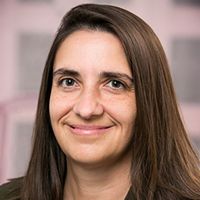You are here
Socioeconomic Disparities in Disabled and Disability-Free Life Expectancy: Implications for Our Fiscal Future
Working Paper*, Mar 15, 2019
A defining challenge for our times is growing inequality in economic well-being, health, and even life itself. We use the DYNASIM4 microsimulation model to project how disability-free and disabled life expectancy—broken into mildly and severely disabled spells—at older ages vary by socioeconomic characteristics. We then show cumulative experiences with Social Security and Medicare for older adults from age 51 through death by categories of disabled life expectancy and socio-economic status, highlighting within- and across-group differences.
The analyses reveal that Social Security and Medicare’s insurance functions are especially profound for those in the lower parts of the earnings and education distributions. Those with less education and lower earnings spend fewer years receiving benefits, and far fewer of the receipt years are disability-free. A greater share of their total benefits are paid during spells of severe disability, when their Medicare spending is relatively high. For those with more education and higher earnings, in contrast, needs are less intensive and spread over a longer—and growing—period, though Medicare benefits are still concentrated in periods of significant disability and health needs. Our findings thus underscore the two programs’ insurance aspects. This diversity in beneficiaries’ experiences has important implications for how policymakers might approach future changes to these programs.

Melissa Favreault
Melissa Favreault is a senior fellow in the Income and Benefits Policy Center at the Urban Institute, where her work focuses on the economic well-being and health status of older Americans and people with disabilities. She studies social insurance and social assistance programs and has written extensively about Medicaid, Medicare, Social Security, and Supplemental Security Income. She evaluates how well these programs serve Americans today and how various policy changes and ongoing economic and demographic trends could alter outcomes for future generations. Favreault has published her research in Demography, Health Affairs, Health Services Research, and the Journal of Gerontology: Social Sciences. Favreault earned her BA in political science and Russian from Amherst College and her MA and PhD in sociology from Cornell University.
*This working paper was made possible by the US 2050 project, supported by the Peter G. Peterson Foundation and the Ford Foundation. The statements made and views expressed are solely the responsibility of the authors.
